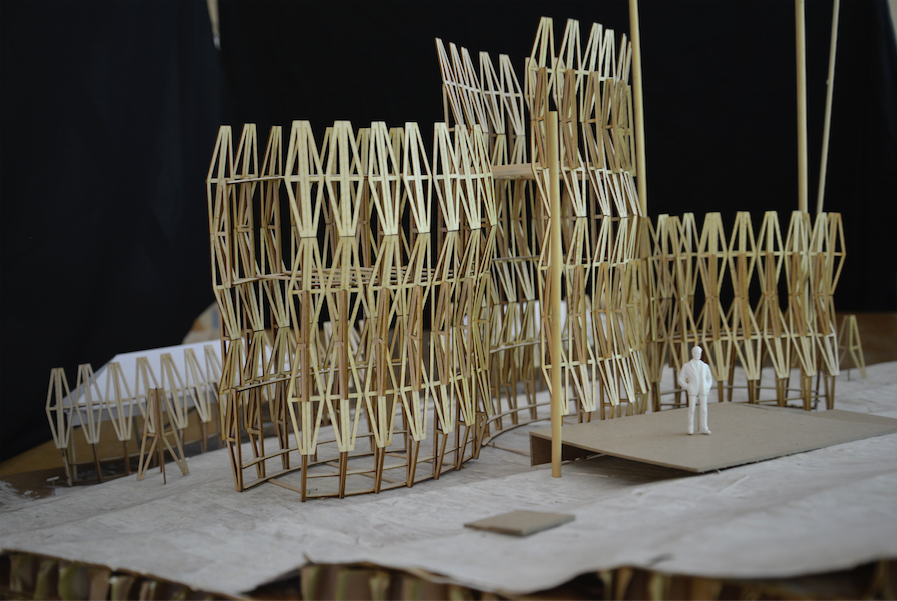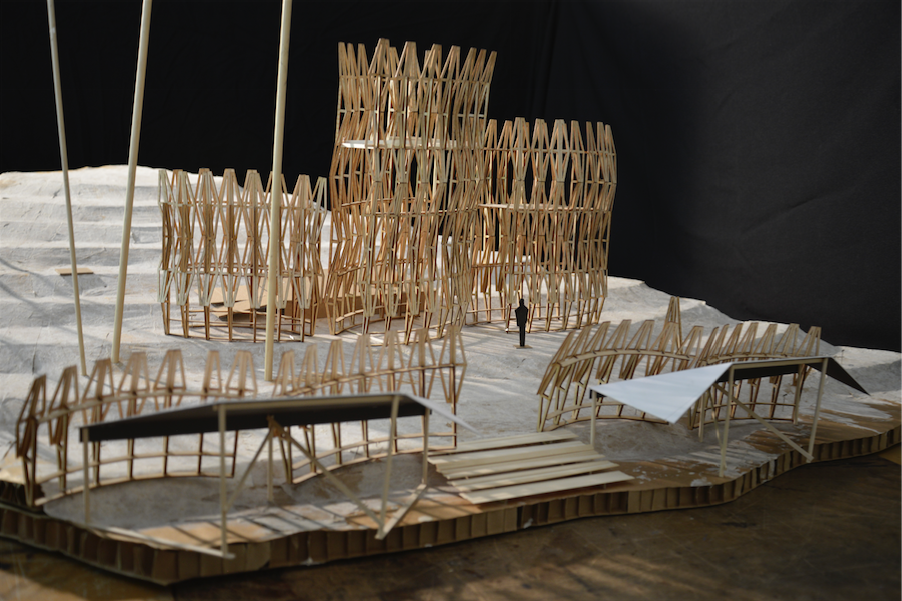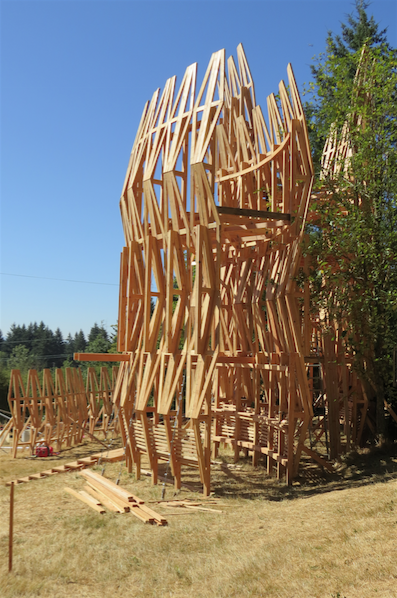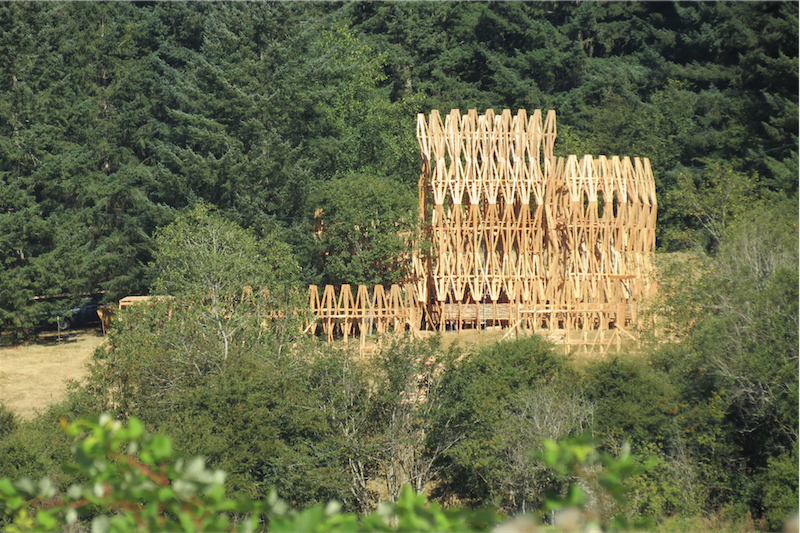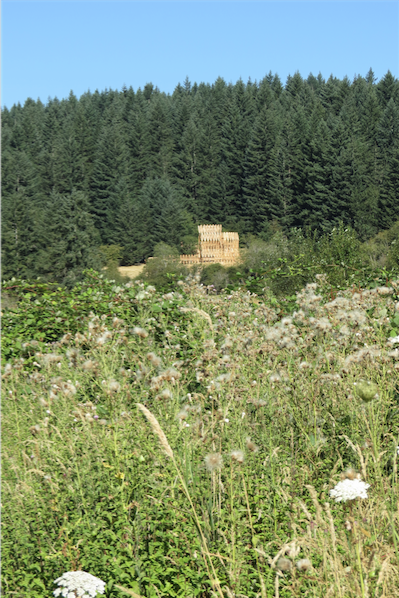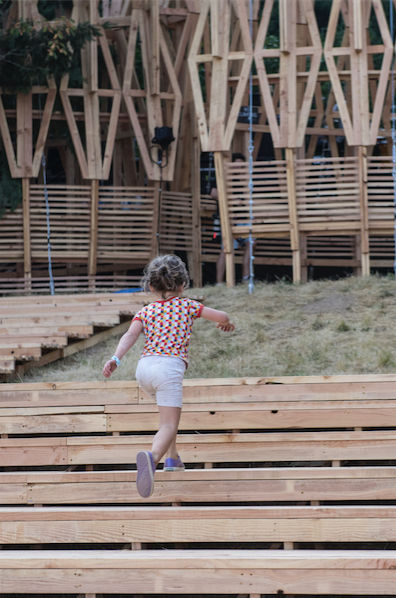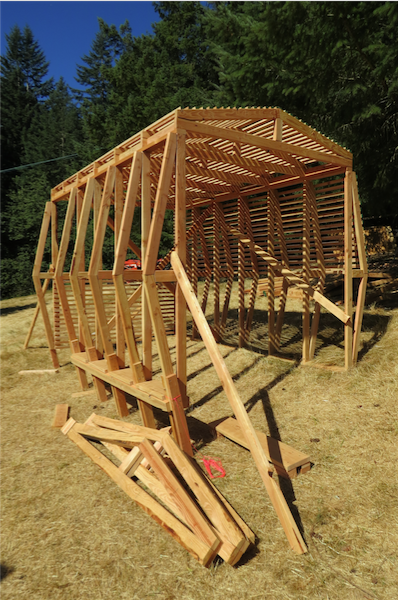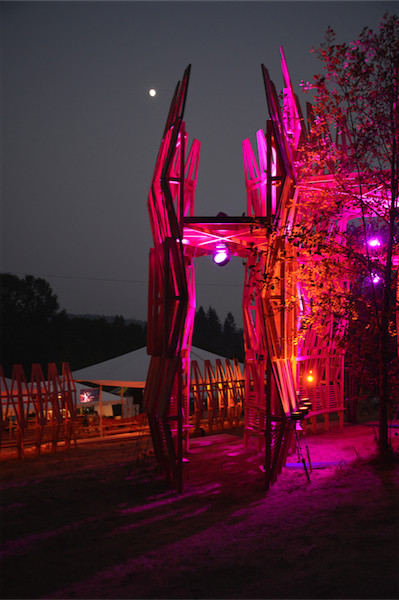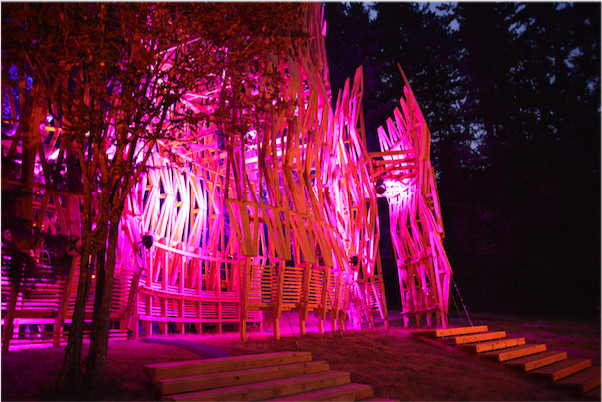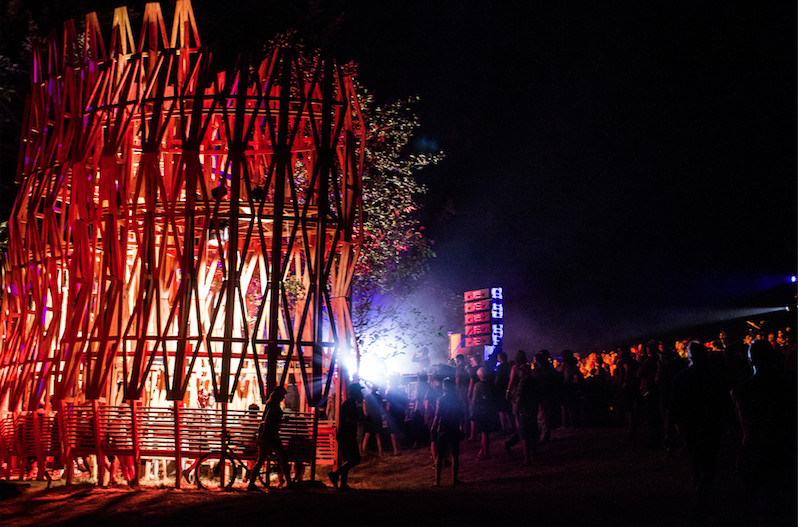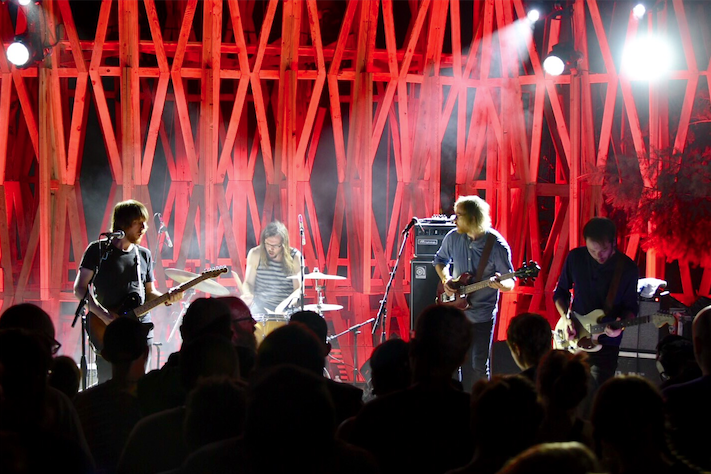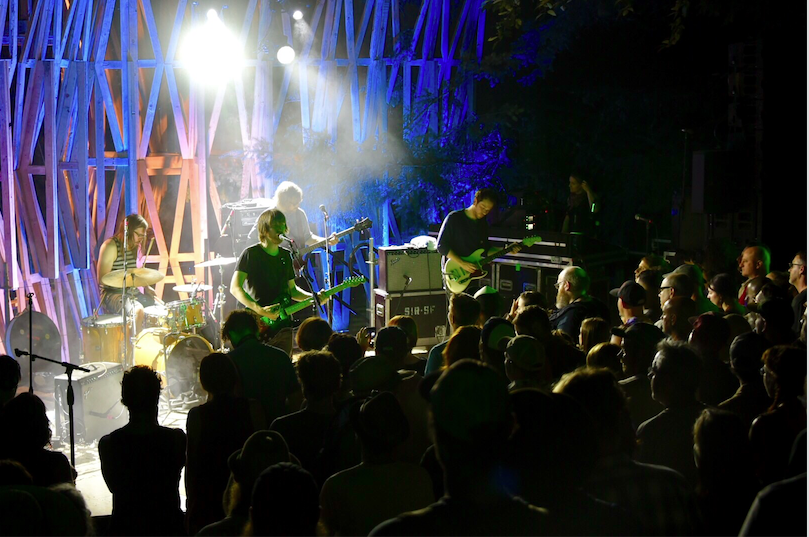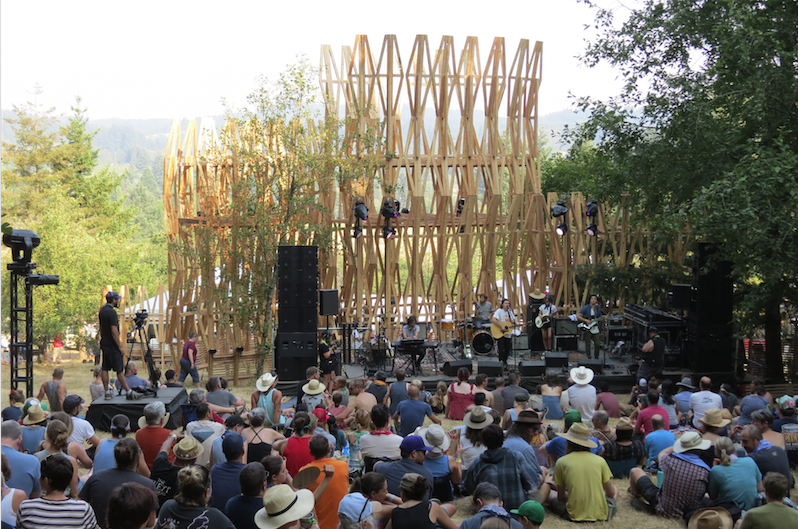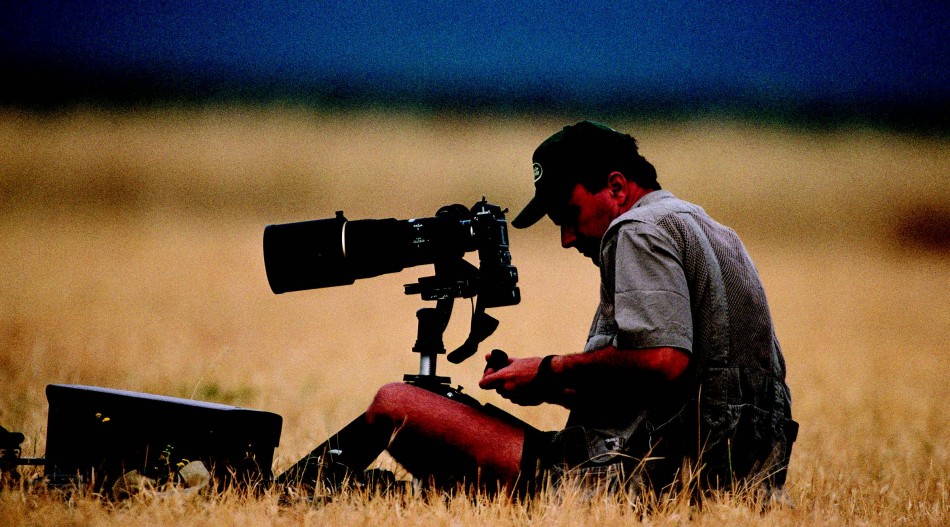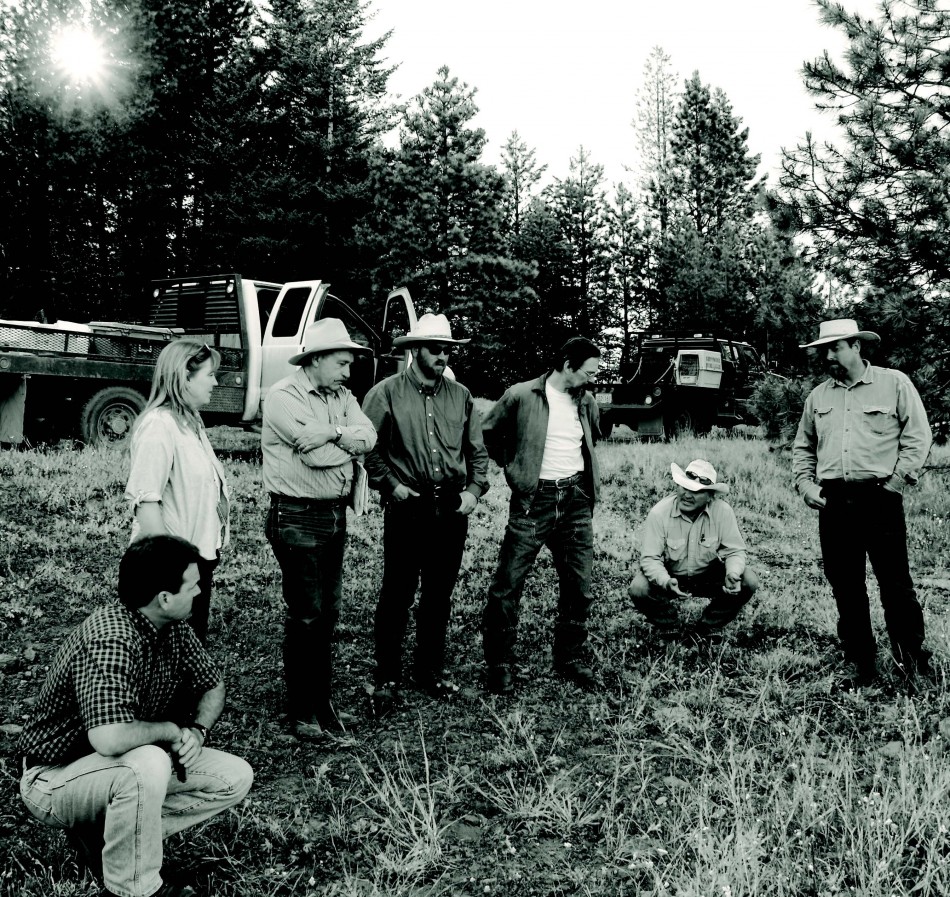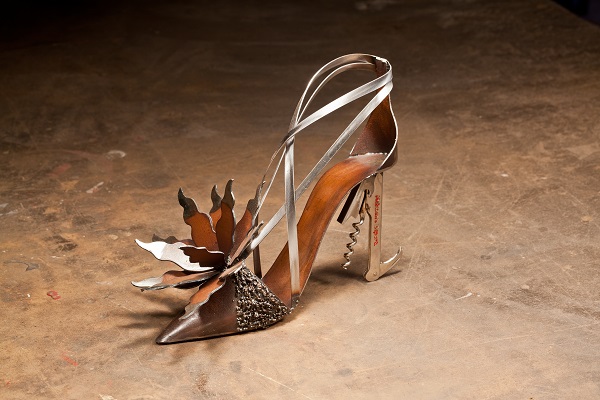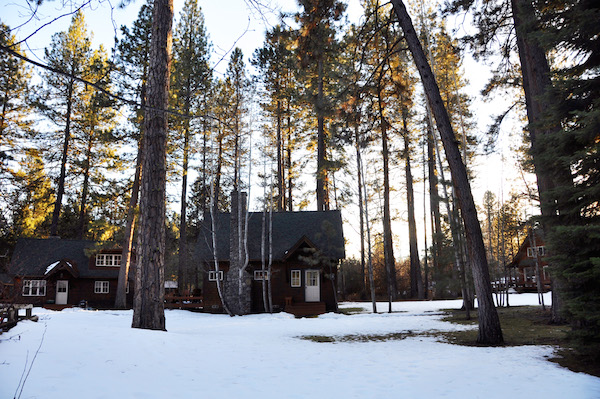Written by Corinne Whiting
Anyone who’s experienced the magic of Pickathon that graces Happy Valley, Oregon, each August, understands that the farm becomes a hub for creative and passionate folks who bring big ideas to fruition. This year’s gathering was no exception, with an epic sustainable stage project in conjunction with Portland State University School of Architecture.
Students used 690 wooden gable trusses to build the Treeline Stage, which hosted eighteen of the festival’s performers (including Tank and the Bangas, Wolf People, KING and Ty Segall). Post-festival, the team deconstructed the stage, with the trusses still intact, and moved the materials to a site in Clackamas County to reconstruct them into tiny homes (called “sleeping pods”) to form a village of homeless veterans. The School of Architecture’s Center for Public Interest Design is helping to coordinate the village project, together with community partners and agencies.
PSU Professor Clive Knights, who is also the architecture school’s director, said the Diversion Design-build concept came to be in 2014, when Pickathon inquired if students would help design a new performance venue. “With a very tight budget and knowing that the design would be dismantled after the festival, we generated the idea of temporarily repurposing a readily available industrial product as the primary building material,” he said. “We used wooden shipping pallets [for the Treeline Stage] in 2014, cardboard shipping tubes in 2015 and uncut 16-foot wood construction studs in 2016. The goal is always to return the chosen product unscathed to its industrial purpose after the festival.”
This year’s project involved two faculty members (Travis Bell and Clive Knights), five graduate student designers and thirty construction and deconstruction volunteers (including students, alumni and local design professionals). In addition, Catena Engineers consulted and Lease Crutcher Lewis provided resource and logistical support.
“This project is a celebration of the concept of mutual aid,” Bell said. “The 2017 Treeline Stage is an educational project for teaching future architects, a semi-public installation exploring new kinds of built space and a public project used to supply social services for local governments and NGOs. Each stakeholder offers incentives for the other stakeholders.”
Bell said the project provided the school with funding and public space to try out experimental architecture, while Pickathon got a performance venue on a tight budget.
“Our government and social service partners gain hundreds of hours of volunteer time and lively public engagement with their various strategies of tactical urbanism. Our students receive tickets to the music festival and are fed throughout the construction and de-construction of the festival by Pickathon,” he said. “On top of this, the students are treated with deep gratitude by festival attendees for their efforts. Everyone gives something and receives something in return.”
Knights was impressed with Pickathon’s pledge to sustainability. “Touching the earth lightly is an apt metaphor for the philosophy of the Pickathon Festival, such that maximizing the pleasure and enrichment that the festival experience offers is never at the expense of the environment. In designing the Treeline Stage each year, we aim to make as dramatic an intervention as possible (challenging ourselves to outdo what we accomplished the previous year) and yet always strive to leave the beauty of Pendarvis Farm just how we found it, ‘re-using’ rather than ‘using up’ as much of the building materials as possible.”
And this isn’t the end of the partnership. “We are already brainstorming ideas for the upcoming year,” Bell said. “This year’s project generated some wonderful momentum that we hope to carry forward.”



